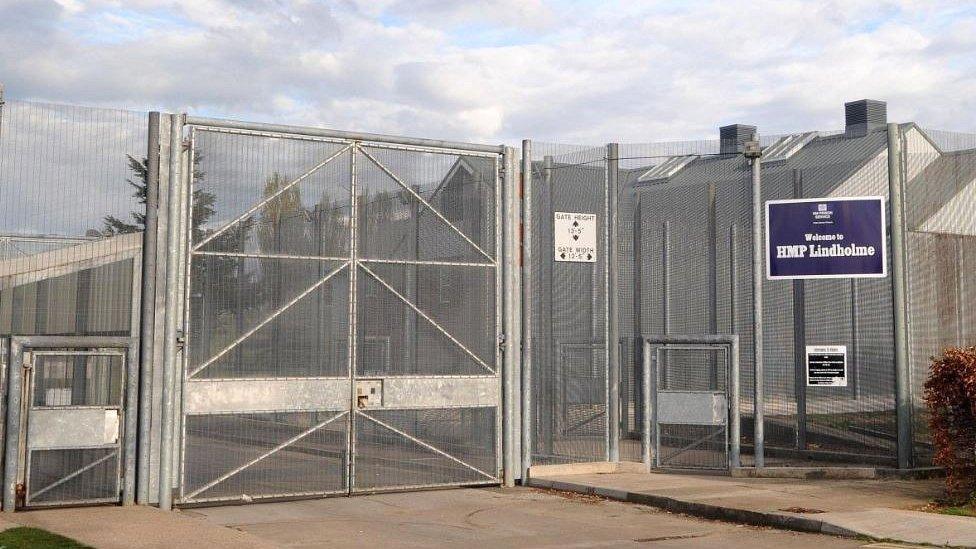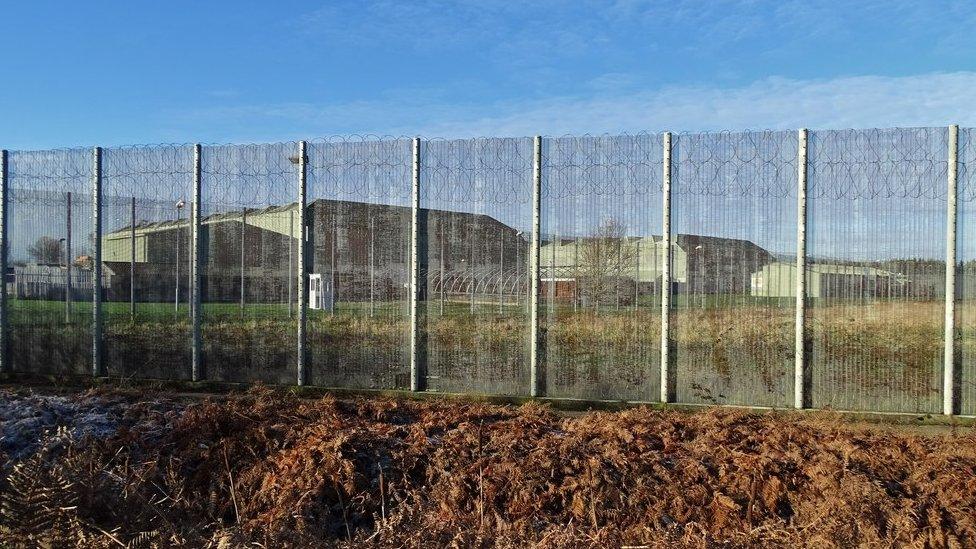HMP Lindholme fails to prepare dangerous men for release - report
- Published

HMP Lindholme is a category C jail which can hold up to 1,000 inmates
A prison in South Yorkshire is fundamentally failing to prepare "potentially very dangerous men for release", inspectors have found.
HMP Lindholme was the focus of a "really worrying inspection" in July, HM Inspectorate of Prisons said.
Charlie Taylor, HM chief inspector of prisons, said it was "even worse in this area" than at a 2017 inspection.
An HM Prison Service spokesperson said "decisive action" was being taken to address the "serious issues raised".
The unannounced inspection at the category C jail near Doncaster which holds up to 1,000 men took place between 17 and 27 July, HM Inspectorate of Prisons said.
Category C prisons are training and resettlement prisons which provide inmates with the opportunity to develop their own skills, so they can find work and resettle in the community when they are released.
However, inspectors said Lindholme was "failing to provide high-risk prisoners with access to the interventions, education or training they needed ahead of release".

The chief inspector of prisons said inmates did not receive the training needed to help them get work on release
In the report, Mr Taylor said: "When I walked round the jail, almost every prisoner I spoke to complained about the lack of support from the offender management unit.
"Many had a feeling of helplessness, unable to progress with their sentence or complete the non-existent accredited programmes that featured on many of their sentence plans."
Mr Taylor added that it was disappointing things were "even worse in this area than in 2017, when we also noted long-term failings".
The report also highlighted that a serious drug problem and staff shortages at the facility was "hampering work to prepare high-risk offenders for release", with many inmates developing issues with drugs due to "a lack of purposeful activity".
The situation was so serious that despite the availability of a drug recovery unit and substance misuse team, 21% of prisoners stated they had developed a problem with drugs since arriving at the jail, and half had said it was "easy" to get hold of them, the report noted.
'Decisive action'
Mr Taylor said despite bids from the jail, HM Prison Service had "failed to put in place the technological and physical solutions that have helped to reduce drug supply in other prisons".
It was also noted that the size of the Lindholme site meant "drones were often able to fly in contraband undetected" and there was "no routine searching of staff or X-ray machines at the gate".
Mr Taylor concluded it had been a "really worrying inspection" of a prison fundamentally failing to prepare some "potentially very dangerous men" for release.
Responding, an HM Prison Service spokesperson said: "We are taking decisive action to address the serious issues raised in this report."
Those included "bolstering security and drug detection technology to clamp down on the contraband which fuels violence behind bars", they said.
"We are also improving staff training to support the most vulnerable prisoners and increasing access to education to ensure offenders get the right skills to turn their backs on crime," the spokesperson said.

Follow BBC Yorkshire on Facebook, external, X (formerly Twitter), external and Instagram, external. Send your story ideas to yorkslincs.news@bbc.co.uk, external.
- Published18 October 2023

- Published27 August 2021

- Published2 December 2022

- Published15 September 2022
